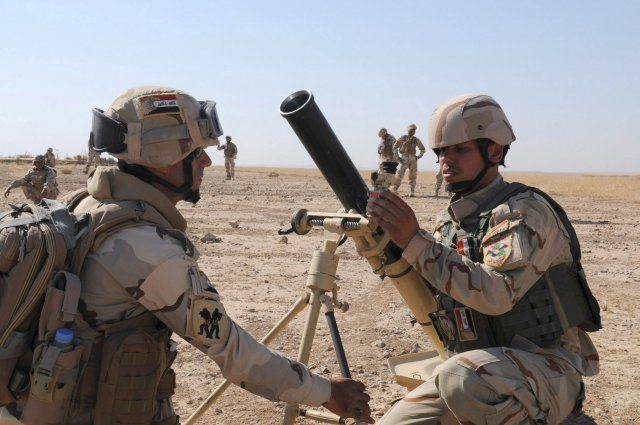With the U.S. troop withdrawal from Iraq just six months away, the general helping to ensure the Dec. 31 deadline is met said that many of the tasks the military now does will fall into the hands of the State Department and Iraqi Security Forces.
Lt. Gen. Frank G. Helmick, U.S. Forces-Iraq deputy commanding general (operations), said during a round table today from Baghdad that the number of U.S. troops in Iraq will drop from the current level of 47,000 to zero as the mission in Iraq transitions from military to civilian-led. He said the transition is directed by the 2008 security agreement between the U.S. and Iraq.
“Many of the tasks we do will roll into the United States Embassy and what is being formed at
the Office of Security Cooperation-Iraq, so they’ll have a huge responsibility,” he said. “We will also transition many of the things we do to the Iraqi security forces and the remainder of task to Central Command.”
“Some of the things we do will not be transitioned; they will not be done because the Iraqi security forces don’t want them done, or it’s not in the Embassy role set,” he explained.
Helmick, who is responsible for the day-to-day operations of military forces in the country, also discounted hints in the media of a military presence in Iraq after 2012, and said he is not aware of any formal discussion between the two governments.
“The government of Iraq has not asked us, and as far as I know our government hasn’t discussed it,” he explained. “Our last order is to go to zero.”
However, the general explained that two separate agreements will allow for continued U.S. assistance to ensure Iraq’s stability well past 2012.
Under the strategic framework agreement, Helmick said the newly formed Office of Security Cooperation Iraq will take on the advisory duties once done by Army advisors and trainers, providing Iraqi Security Forces with oversight on joint training, combined arms training and new equipment fielding. A theater security cooperation agreement through U.S. Central Command, or CENTCOM, will allow for joint exercises and collective training, much like those between the U.S. and its other allies.
Meanwhile, Helmick said there will be many difficulties ahead for those tasked with the country’s continued progress after the military’s departure. He pointed to the continued formation of the Iraq government, professionalization of the Iraq Security Forces, better security in the southern part of the country where there has been an uptick in attacks over the past three months, as three challenges that concern him.
He said despite a slight increase in attacks in recent months, the once-volatile security situation has “vastly improved” over the years and the country is moving in the right direction.
Helmick pointed out that in 2007 attacks averaged more than 400 a week on U.S., coalition security forces and Iraqi civilians. That number, he said, is down sharply to roughly 100 weekly.
Eight years into the conflict in Iraq and months away from leaving, the general, now on his third tour of duty in theater, borrowed a quote from former Notre Dame football coach Lou Holtz to sum up the situation there:
“It’s not where we want to be. It’s not where we need to be, but thank goodness, it’s not where it used to be.”










